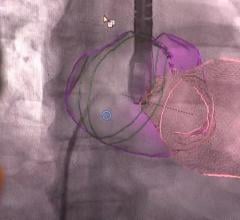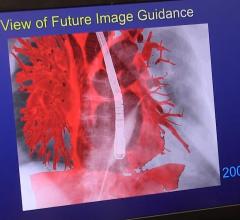
Nile Therapeutics is developing a peptide derived from the venom of the green mamba snake as a 90-day, out-patient treatment to prevent hospital readmissions following acute decompensated heart failure events.
The National Heart, Lung and Blood Institute (NHLBI), a division of the National Institutes of Health (NIH), recently awarded a $2.5 million grant to Mayo Clinic’s Cardiorenal Research Laboratory to see if snake venom can improve outcomes of heart attack and heart failure patients.
The innovative research project, “Cardiovascular Peptides and Myocardial Infarction,” seeks to further understand the potential of a novel, engineered guanylyl cyclase (GC) activator, cenderitide, to reduce the level of cardiac and renal injury following a myocardial infarction, or heart attack. Researchers will try to determine whether the therapy could help prevent deterioration of cardiac and renal function following a heart attack, and potentially reduce further progression of heart failure in patients.
Mayo researchers invented cenderitide to activate two different subtypes of GC receptors, which uniquely differentiates cenderitide from other GC stimulating peptides. Cenderitide, a designer peptide derived from the venom of the green mamba snake, may aid in the preservation of cardiac and renal function following serious cardiovascular events, such as heart attack and acute decompensated heart failure.
At the annual meeting of the American Heart Association in November 2011, Fernando Martin, M.D., a research fellow in the Cardiorenal Research Laboratory at Mayo Clinic, presented key research data demonstrating the ability of cenderitide to prevent the death of heart cells.
The NHLBI grant will support basic research in the laboratory and a small proof-of-concept clinical study. Mayo plans to enroll 60 patients into the study at Mayo Clinic sites in Rochester, Minn., and Jacksonville, Fla. The endpoints of the study include safety, 30-day cardiac function, circulating hormones levels and other cardiorenal biomarkers. To learn more about the clinical study, physicians can call 507.284.4838.
Mayo licensed cenderitide to Nile Therapeutics Inc., a biopharmaceutical company based in California. Nile is currently developing the peptide as a 90-day, outpatient treatment to prevent hospital readmissions following acute decompensated heart failure events in a study which has received a fast track investigational new drug approval from the U.S. Food and Drug Administration.


 January 18, 2022
January 18, 2022 






